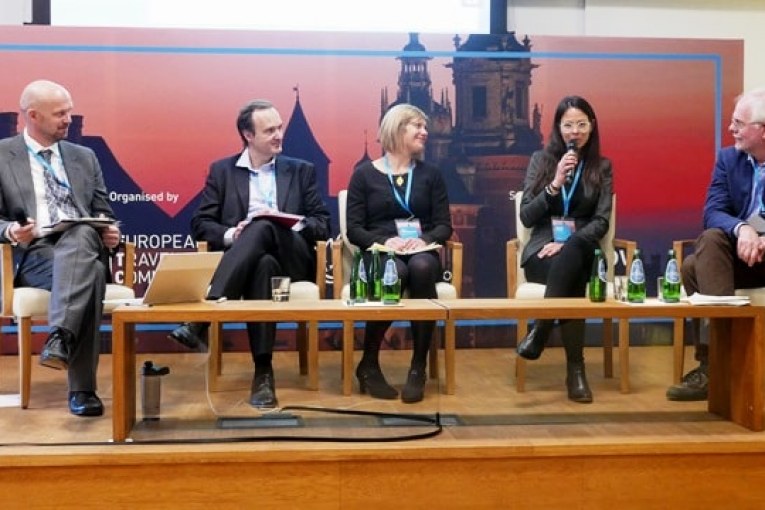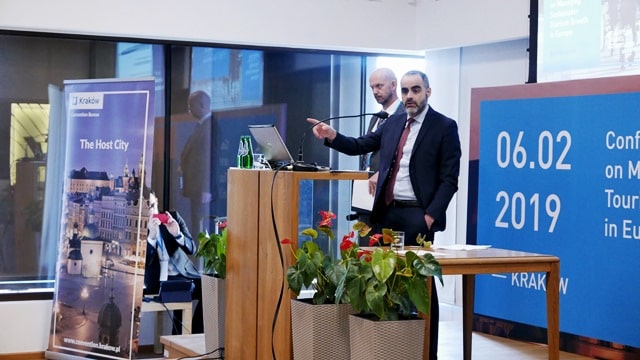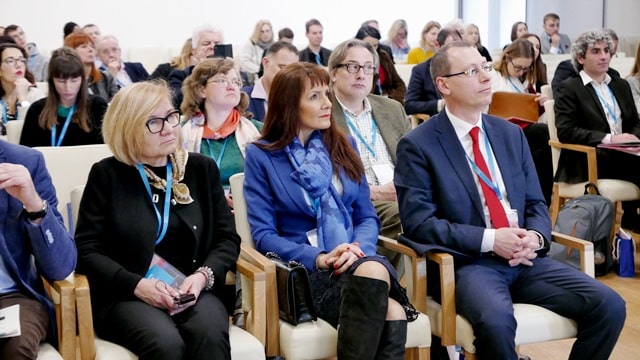
aTP- Arab tourism portal News
The steady growth of tourism arrivals to Europe above its long-term forecast generates a mix of enthusiasm and concerns
Krakow – Delegates at the Conference on Managing Sustainable Tourism Growth in Europe, organized this week by the European Travel Commission (ETC), were faced with an urgent call to achieve a balance between the needs of the tourism industry, travelers, local communities and the environment if they are to succeed now and in the future. That was the challenge set by Robert Andrzejczyk, President of the Polish Tourism Organisation, in his opening remarks. The ETC Conference, hosted in the historic City of Krakow, was held in partnership with the Polish Tourism Organisation and provided a forum for those in attendance to discuss innovative approaches on how to manage sustainable tourism growth.
Speaking ahead of the conference, Executive Director of the ETC Eduardo Santander outlined that “the aim of this conference is to discuss the causes and consequences of overtourism in Europe as well as to address some of the myths and misconceptions around the term. The long-term sustainability of growth in Europe requires a balance between economic, socio-cultural, and environmental sustainability. We want to highlight best practice and to evaluate a range of approaches that different destinations might find useful for their own cases.”

More than a hundred top experts from destination marketing organisations, private sector, travel intelligence and academia debated various challenges the tourism sector faces: its impact on the environment and local life and the growth limits.
Setting the tone for the day, Anna Pollock’s keynote address focused on the promise of regenerative tourism, where she outlined the idea of tourism through community education, engagement and empowerment. Interestingly, Anna outlined the ‘four steps to a flourishing destination’: Becoming Aware; Taking Responsibility; Collaboration; and Connecting.
Attendees on the day were presented with the results of a significant piece of research by Olivier Henry-Biabaud from TCI Research, which centred on the concept of overtourism and the myths surrounding it. According to the TCI research, overtourism and its related effects continue to rattle the travel and tourism industry, however the problem is usually not growth itself, but the way tourism growth is managed as an integral part of city planning.

During the first panel discussion of the day, the impact and consequences of unsustainable tourism growth in Europe was discussed at length. Attendees heard from Sara Mair Bellshaw from the University of the Highlands and Islands and Paul Peeters from Breda University who contributed to the discussion with an evaluation of the environmental impacts of tourism, especially in rural areas. Less capacity of rural areas to absorb significant increase in visitors’ numbers also makes them vulnerable to becoming overcrowded.
The second panel took the private sector standpoint to debate and exchange ideas on how to identify possible solutions and strategies for managing sustainable tourism growth. Nikos Mertzanidis from Cruise Lines International Association, Natasha Mytton-Mills from Airbnb and Sara Pastor from ADARA engaged in the industry debate on the roles and responsibilities of their sectors in archiving sustainable tourism development in Europe with a right balance between economic growth, environmental impact and social value.
Embracing the challenges ahead for the tourism industry, the spirit of cooperation was high on the day, with all attendees agreeing that further collaboration was necessary in order to manage sustainable tourism growth. Corroborating these views were several polls which were conducted throughout the day, with most participants feeling that destinations in Europe are ready to face these challenges, but a lot of work and cooperation is still necessary of all parties involved: policy makers, industry, destinations and residents.








